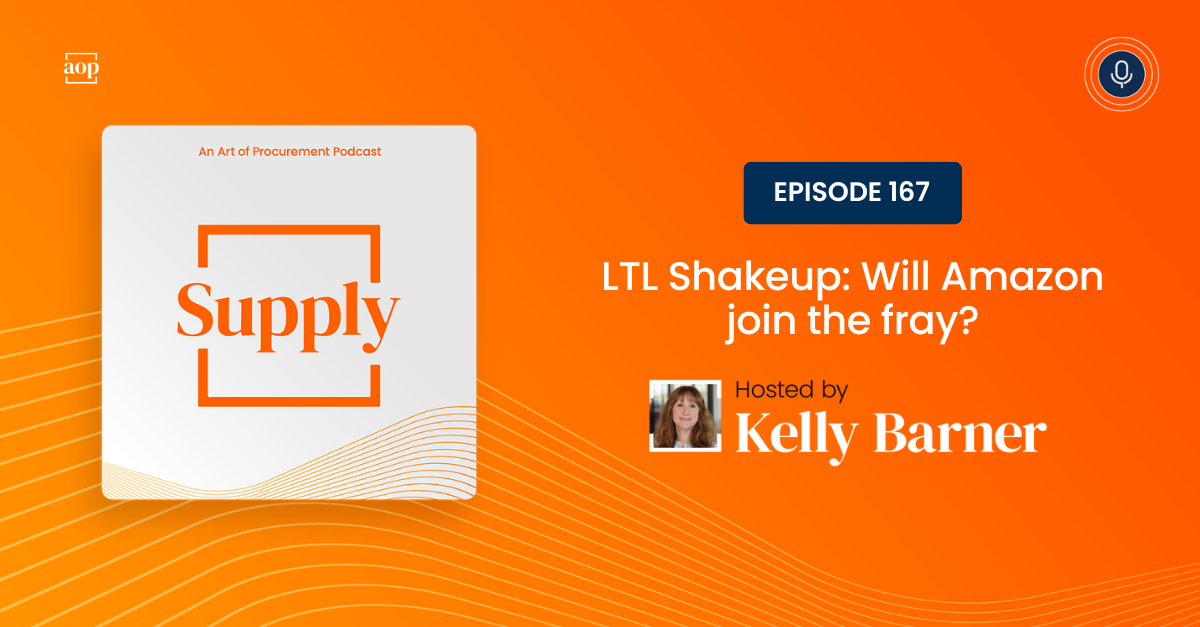
Less-than-truckload (or LTL) logistics services are used for moving freight that is less than a full truckload but more than a parcel shipment, like you transport using traditional UPS or FedEx services.
When rumors recently started to swirl that Amazon was considering entering the LTL market, not just for their own goods, but for external shippers as well, people started taking a closer look at the space - including how likely the move is and how Amazon’s entry might affect the competitive landscape.
Amazon already offers LTL services in the UK and Germany - but only to Amazon sellers. They also offer full truckload services in the United States, but again, only to their market sellers.
Amazon’s LTL and truckload partners offer Amazon sellers discounted rates. These savings provide a benefit for sellers and the tighter integration helps Amazon’s operations team track inventory, but none of that is new - or newsworthy. It is also not unique to Amazon; Walmart offers a similar program called Walmart Fulfillment Services. But if either of them started leveraging their existing network and/or service partners to compete directly with other LTL carriers, the impact could be significant.
LTL is More Than Challenging
After the COVID-driven logistics boom, the LTL market entered a drought, one that they are still waiting for a rebound from.
TFI International CEO Alain Bedard has said he expects the first 6 months of 2025 to be even harder than the same part of 2024. He went as far as to describe the fourth quarter of 2024 as a “disaster.”
Most LTL carriers are currently carrying fixed operational costs that are too high for the volumes available for them to ship. Their efficiency in this area is typically measured via their operating ratio: (Total Operating Expenses / Net Sales) * 100.
If the operating ratio is an issue for pre-play LTL carriers, having diversified competitors enter the market would only increase the pressure. Retailers like Amazon (or even Walmart - although they are not included in the recent rumors) have the opportunity to spread fixed costs associated with LTL over different revenue sources less affected by dips in shipping demand.
Raising Eyebrows
Based on today’s business conditions for LTL carriers, no one beyond Amazon would be looking to enter the space. That said, if they do take the plunge, the impact will be felt far beyond volumes - their approach to digitization and customer service would challenge conventional carriers as well.
As Wesley Park wrote for AInvest, “Amazon's aggressive pricing strategies and focus on customer experience could force traditional carriers to adapt or risk losing market share. [...] Amazon's LTL ambitions pose a threat to the incumbent carriers but also present an opportunity for the industry to innovate and adapt.”
Amazon didn’t get to where they are today without serious investments in user experience, but also logistics tracking and scheduling. If they enter the LTL space, other carriers would be forced to invest in the same just to keep up.
And for anyone who says Amazon can’t do it, Amazon Air Cargo may serve as proof that they can do anything they set their minds to.
Launched in 2024, Amazon Air Cargo is a wholesale air cargo service for third party shippers. In addition to having the funds to invest in infrastructure and partnerships, they have a logistics network that makes intermodal capacity adjustments possible.
Shippers can sign up for blocks of space or entire aircraft, and just like an LTL would be, it grew out of an in-house air logistics unit founded in 2016 to help meet delivery commitments of one to two days for Prime members. The company has about 100 aircraft in its fleet operated by partner airlines under long-term contracts.
Many eyebrows were raised when they suggested providing art cargo services for third parties, and yet have become successful, so why should we think they can’t do the same with LTL?
If there is one thing we should all know by now, it is not to bet against Amazon.




